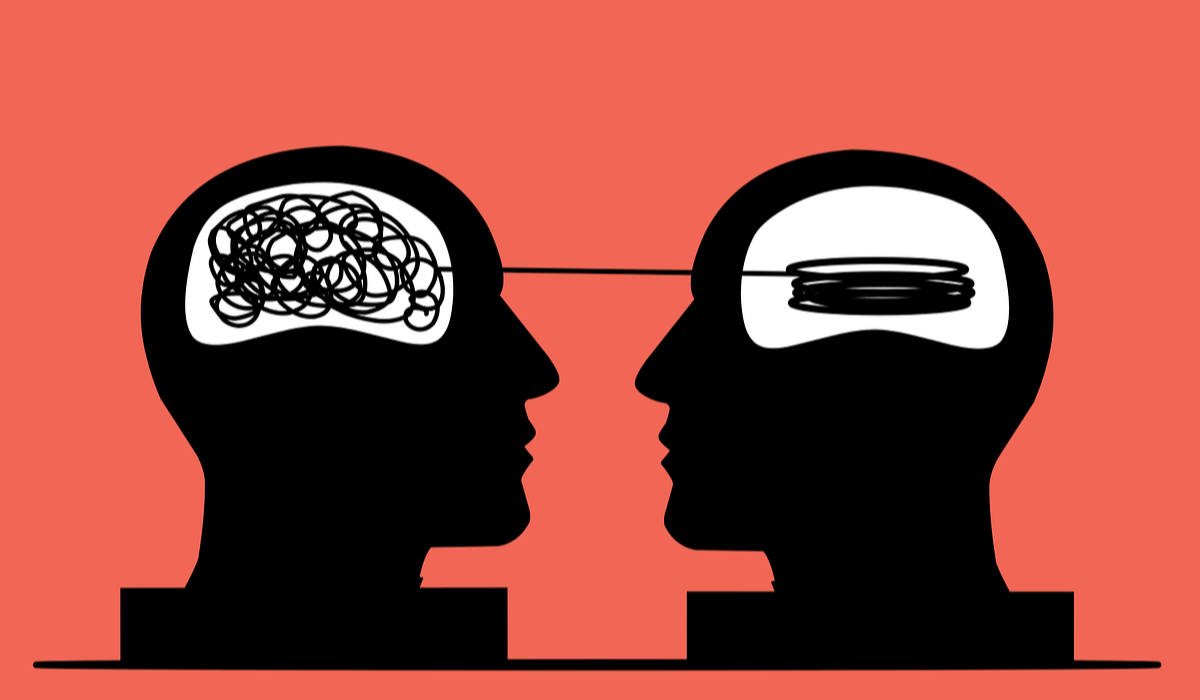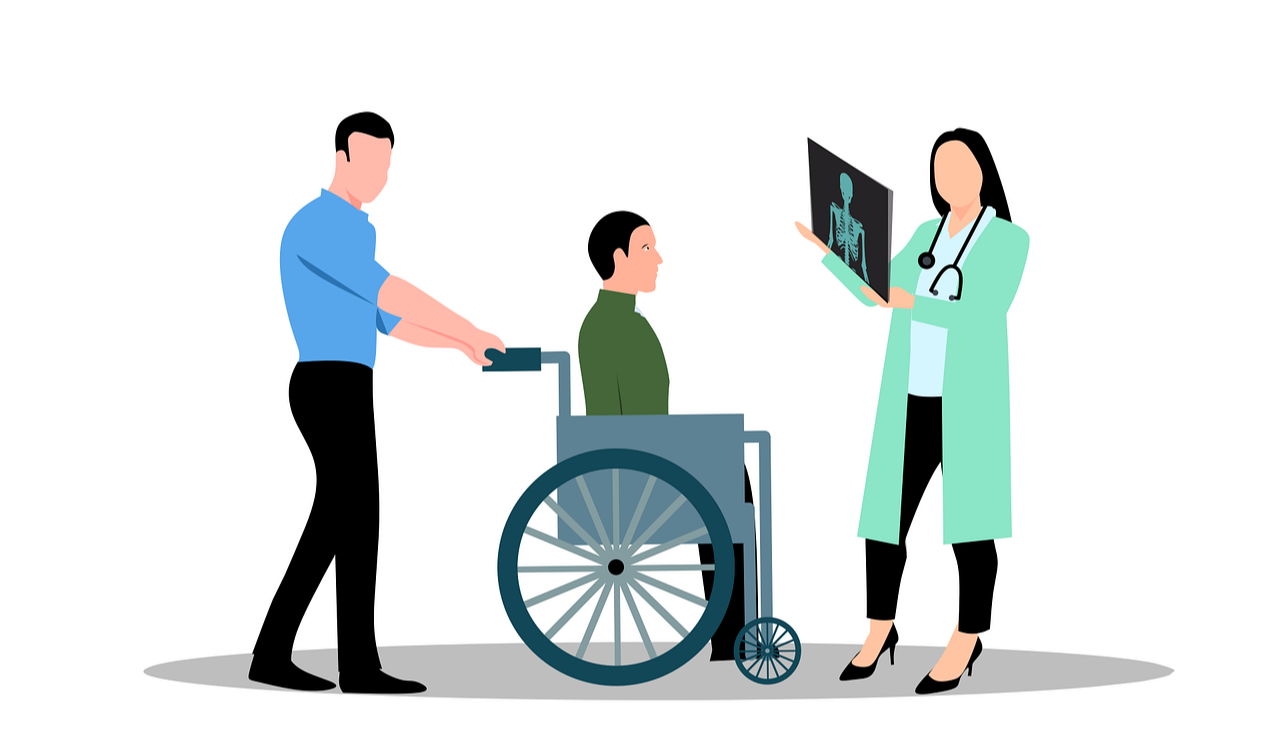My One Track Mind
If you have had a conversation with me in the last year or so, odds are I have brought up neurodivergence. (Cue the eye rolling and the groans from...
5 min read
 Whitney Storey, MS, LPC, ASDCS
:
Apr 30, 2022 12:28:40 PM
Whitney Storey, MS, LPC, ASDCS
:
Apr 30, 2022 12:28:40 PM

There are so many wonderful things about being a parent. There is nothing better than being able to watch your children grow and change, discover things about themselves and the world, and develop their own unique personality! At the same time, being a parent is one of the most difficult and, at times, painful roles. For those of us who identify as neurodivergent, parenting has another added level of difficulty. Finding Neurodivergent support is essential.
In a previous blog, I discuss some of the basics of neurodiversity. A quick Google search will lead you to a multitude of websites, blogs, and book recommendations for raising a neurodivergent child; however, when I was looking for resources and information about parenting as a neurodivergent adult, I was left wanting.
Neurodiversity has been discussed in mental health and education primarily in children, due to what we understand about neurodivergence comes from increased knowledge on autism spectrum disorder (ASD) over the last 20-30 years. But we are beginning to understand more now about the diversity in brain function beyond ASD, and many adults (especially adult women) are realizing their neurodivergence much later in life.
As the name "neurodiversity" implies, neurodivergent folks can look, behave, and function in all sorts of ways, so this blog is only a quick summary of two big concepts that many neurodivergent folks will find they can relate to.
Vison, touch, temperature, pressure, sound, taste, smell - the senses of neurodivergent folks tend to be different in some way. Some will struggle with one or two senses, and other folks will experience many or all of their senses in different ways than neurotypical folks. Some neurodivergent folks even experience something called synethesia, which is the overlapping or cross-talking between two senses that are generally separate (e.g., having a visceral reaction to certain sounds or images; experiencing texture as painful, etc.). Some neurodivergent folks struggle with reactions to senses that are more extreme than other people, while other neurodivergent folks will find that they have a decreased reaction to sensation.
One of the primary ways neurodivergence affects my own and other's parenting is experiencing sensory overload. Children can be loud, active, unpredictable, and messy.
For me, this means that as the day goes on, I find myself becoming less and less tolerant of noise that might otherwise seem normal - the sound of chewing, for example. When I have been surrounded by noise (e.g., talking, laughing, screaming, television, music, crashing, water running, etc.) all day long, my brain has been working on overdrive to compensate for all of that sensory input. If you think of your brain like a muscle, it gets tired from working so hard, and so I have to seek quiet. To an outsider (like my partner), the sound of chewing might be so subtle that they hadn't even noticed, so my reaction to it can appear to be intense.
Other neurodivergent folks struggle with their senses in terms of touch (e.g., becoming uncomfortable or distressed due to the texture of certain fabrics), temperature, smell, vision, or others. Very often they will have issues with many of these at one time.
As a result of the intense relationship that neurodivergent folks have with their senses, we can use this to help when things get hard. For my issues with auditory stimulation, for example, I find that I can either plan to drown out the noise with the use of noise-cancelling headphones or I can try and get some of my other senses more active as a way to distract my brain. Maybe there is a particular sweater that has a pleasant texture or a certain weight that is calming? As the evening approaches and I know my auditory input is reaching its limit, seeking out the comfort of a particular piece of clothing or a weighted blanket can offer a bit of relief. Certain fidget toys can be calming (I love a super squishy ball during my overstimulated times), and if you're able to escape to a totally dark room, that can be very calming to your nervous system.
For times when you might need to increase your nervous system activation to focus, there are fidgets that are made in a variety of shapes, sizes, and textures, that create unique sounds and make interesting movements, to excite your nervous system. Sour and gummy candies are both used to return to the present moment when when you find yourself dissociating and fading.
Routine is much more than convenience for neurodivergent folks. The attachment to predictability relates to the right hemisphere of the brain, which is involved with pattern and rhythm, while the limbic system, is primarily involved in unconscious emotional reactions and concerned with predicting danger. Neurodivergent folks tend to have increased activity in the limbic system (warning them of potentially life-threatening danger) when expected outcomes do not happen in comparison to neurotypical folk.
Some of the biggest issues with routine for neurodivergent folks come from unplanned and unavoidable changes. For example, when children get sick and plans must be changed in order to get them to the doctor, schedules rearranged and plans cancelled - these times can be more stressful than for a neurotypical parent. In addition to being worried about your children, balancing work responsibilities, and child care, a sudden change to what our nervous system expects can cause emotions that feel very much like grief. As a neurodivergent mom in these moments, I find that I tend to internalize my sadness and stress, which can lead to strong feelings of shame. When a plan is changed, regardless of whether the change is positive or negative, our limbic systems tell us that we are in danger, and worse still, the danger has been caused by our own children (by no fault of their own, of course. The limbic system is not logical).
One of the best things about being a parent who thrives on routine is that one of the best things for children is to have a predictable routine. Our nervous system likes order so that it can predict what comes next, and it likes effective emotional regulation which also important for our children! We get to be the kind of people for our kids that we needed when we were little.
To build upon a natural desire for routine and predictability, I highly recommend a planner system. I love Google calendar because I have the ability to have different calendars with different colors, reminders that come to my desktop, my watch, and to my phone, and the ability to see my day, week, and month at a glance. The calendar provides organization and easy access allowing my brain to feel safe and secure. This system also allows ease with making changes that doesn't activate my limbic system more than necessary. While it will activate a bit due to the change, there is no erasing, re-writing, and page flipping - it's as simple as clicking "edit", swiping with my finger, and hitting "save".
Coming up with a system for your routine (keeping in mind what will make changes most palatable for your style of neurodivergence) will be a great benefit for you and for your children. Working with your system, involving your children and allowing them to see what you do and how you do it, gives them practice at executive function skills that will help their own frontal lobe develop. It's a win all around!
As I mentioned before, while these two topics come up with myself and the neurodivergent folks I chat with, they are not the only two ways that we tend to be different. This journey is life-long as our brains continue to grow and change through adulthood. We are continually changing in a world that is always changing. No two journeys are going to be identical.
Maybe you know or suspect that you are neurodivergent? It might be something that you notice in your own children, and are wondering if it applies to you. Maybe you have a partner who you suspect is neurodivergent? If you're struggling to find a community or resources online like I did, reach out! This is a journey you don't have to take on your own.

If you have had a conversation with me in the last year or so, odds are I have brought up neurodivergence. (Cue the eye rolling and the groans from...

This blog is a companion blog to "Doctor Visits for Neurodivergent Folks," wherein I discuss specific ways that neurodivergent people can best...

Working with parents has been my niche for a long time now, and I have been a parent myself for nearly ten years (which blows my mind). Over these...